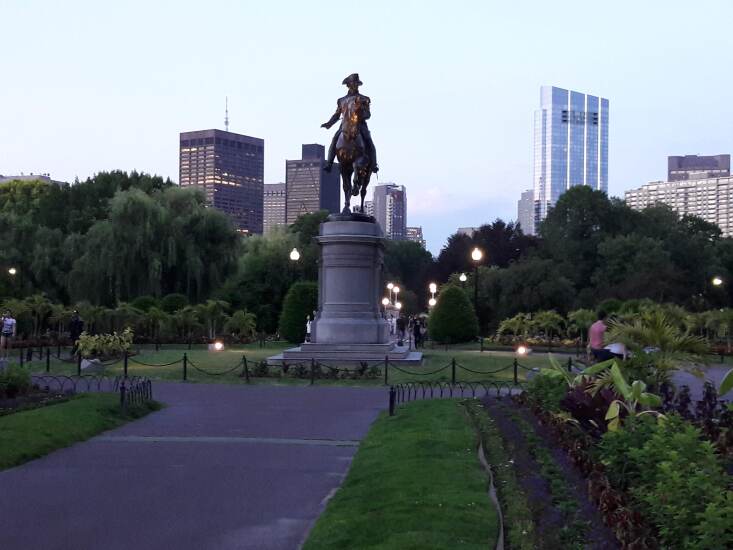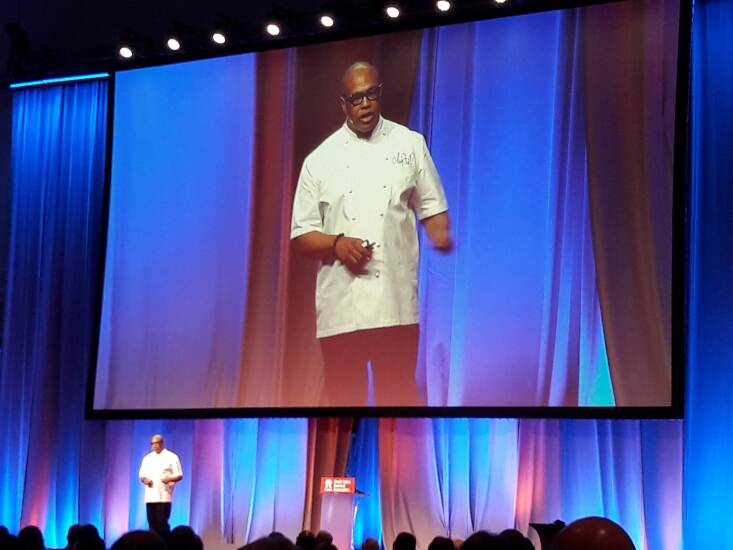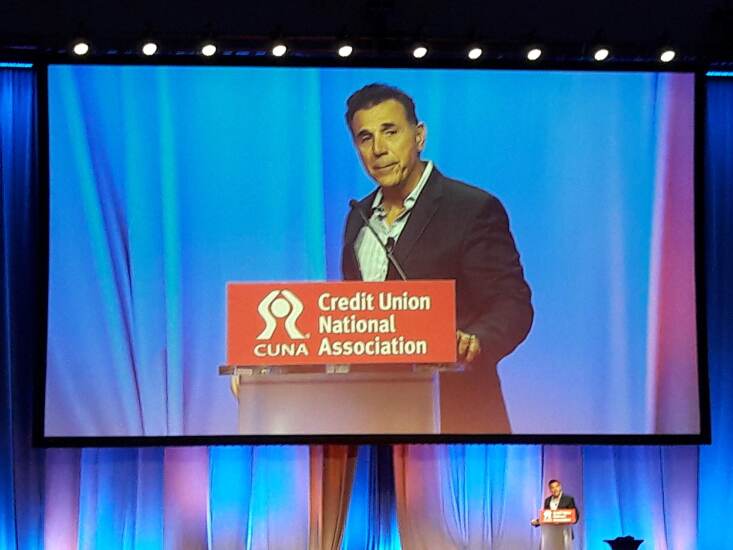
CUs convene in Boston
Pictured above: entrance to the Boston Public Garden.

'Open your eyes'
A new national branding campaign – with the tag line “Open your eyes” – is set to drop early next year once the mid-term election chaos has subsided, CUNA President and CEO Jim Nussle announced today during remarks at ACUC. The campaign emphasizes that credit unions are for everyone, and while the messaging and tone may take some already in the movement by surprise, Nussle noted, "we tested it, and it was off the charts with those who weren’t going into a credit union or had maybe heard of one and weren’t going in.”
The campaign aims to take on the big banks, which Nussle said annually spend more than $1 billion each on marketing, or about $43 for every dollar a credit union spends.
“Part of the reason they’re spending so much money is because their reputation sucks!” he quipped.
In order to counter banks' investment in marketing and ensure the messaging is effective, CUNA hopes to raise $100 million across the next three years in order to make it stick.
“It’s time to go big,” he said. “We’ve got to create our own future – we’re not going to get another opportunity.”
And the end goal, he added, is to ensure the movement is vibrant for generations to come. He said he gets asked regularly if credit unions are going to be relevant in five, 10 or 20 years. His answer?
“Hell yes, we are”

Hero of the year

Fin lit matters
The place to start, she added, is with staff. Studies show one-third of people struggle at work because of financial worries, and if credit unions can help their own personnel get their financial lives in order, employees will be better positioned to help members because they will already understand the value of having that partner.

Chef Jeff
While in prison, Henderson had the chance to interact with white-collar criminals who were educated and read the Wall Street Journal – a world Henderson had never experienced, having grown up in poverty. The lesson he gleaned from them, he explained, was that many of the skills he had learned as a drug dealer – including profit and loss, management, leadership and more – were transferable.
"Those business traits I honed on the streets, what I didn't realize was those were transferrable skills," he explained. "What I didn't realize is selling is selling, and the only difference is the product...The final 'a-ha!' moment for me was during that moment when [another inmate] said 'change the product, transfer those natural skill sets into a legitimate revenue stream.' A light came on [and] I said 'This is what separates the haves from the have-nots!'"
The key, he explained, was finding his gift – not his passion, but his gift. That occurred when Henderson was put on the kitchen crew and got to experience not only cooking, but ingredients he had never had before. He eventually became the head inmate cook, and after his release in 1996 he began meeting other chefs who helped him hone his skills and learn more about the profession. And as his career grew, he made sure to surround himself with those who could teach him and help him improve his skills while he helped them in their own careers. Years later, after publishing a book about his journey from being a drug dealer to a chef with a prison stint in between, he was invited on the "Oprah" show, after which he became a celebrity who today has published multiple books and hosted a variety of TV shows.
"Discover your gift and become passionate about the gift and the talent God blessed you with and success will be almost guaranteed," he said.

Return emcee
Speaking after Henderson's remarks, DeCarlo reminded that while Jerry Seinfeld may have been the title character on that show, many stand-up commedians fail going into TV.
"Jerry Seinfeld did what Jeff was talking about," he said. "Jerry was the worst actor on that show by far. He was a writer, but he had never written for television before. So what did he do? He gathered people around him who supported his shortcomings and his blindspots."
Credit unions, he said, are more than a business but serve "a great, noble purpose."
By lunchtime Friday, the hashtag #CUNAACUC was in the top ten trending items on Twitter, and DeCarlo urged the crowd to continue to use the hashtag across Twitter, Instagram and more, "and we will take over the Internet by dinner time!"

Marketing with a purpose
That was the message from Jonathan Mildenhall, former chief marketing officer for Airbnb, who offered a keynote address on Friday morning. A native of England, Mildenhall came to the States to work for Coke before moving on to Airbnb. Where Coke was the dominant brand of the 1980s, Nike the 1990s and Apple the 2000s, Airbnb aims to take that place in today’s market, he explained. And its strategy involves what he referred to as “the power of purpose.”
Much of the company’s strategy has been inspired by lessons Mildenhall learned at Coke, finding ways to tie the Airbnb to cultural movements promoting tolerance, diversity and equality, such as a 2015 campaign when the transgender community was under attack. More recently, after the hashtag #AirbnbWhileBlack went viral, the company made all hosts sign a non-discrimination agreement, while also running a Super Bowl ad – the cheapest Super Bowl ad in history, at just $65,000, he said – that promoted diversity at the company and among its customer base and hosts. The kicker of the campaign was the hashtag #WeAccept.
The ultimate impact, he said, has been increasing the company’s valuation from $1 billion to more than $31 billion, with more than 70 million guest check-ins in 2017.
Purpose-driven marketing has great value for businesses of all kinds, he emphasized, adding that “purposeful marketing is legacy marketing.”





